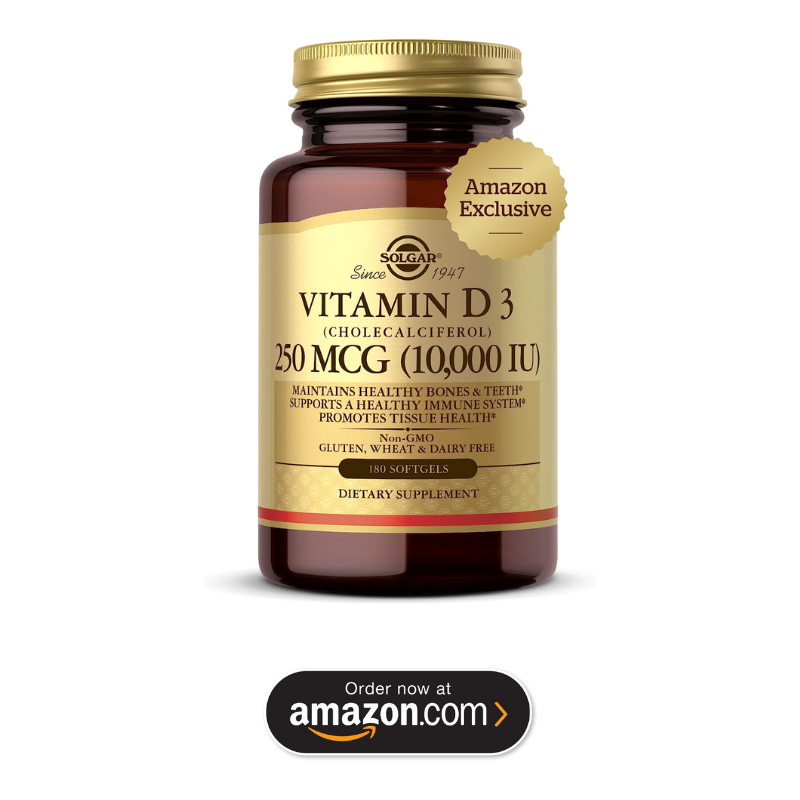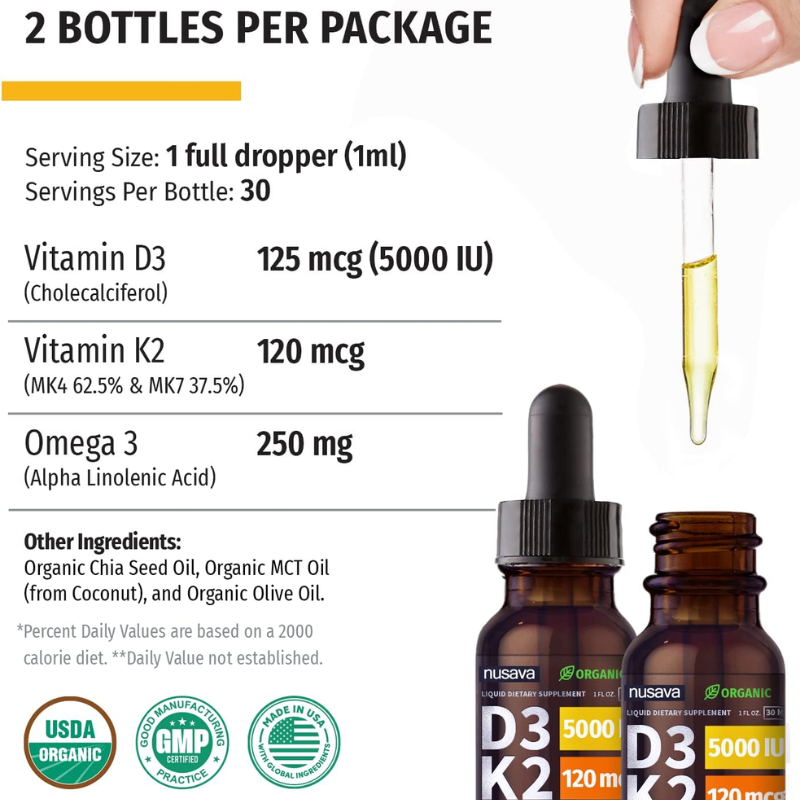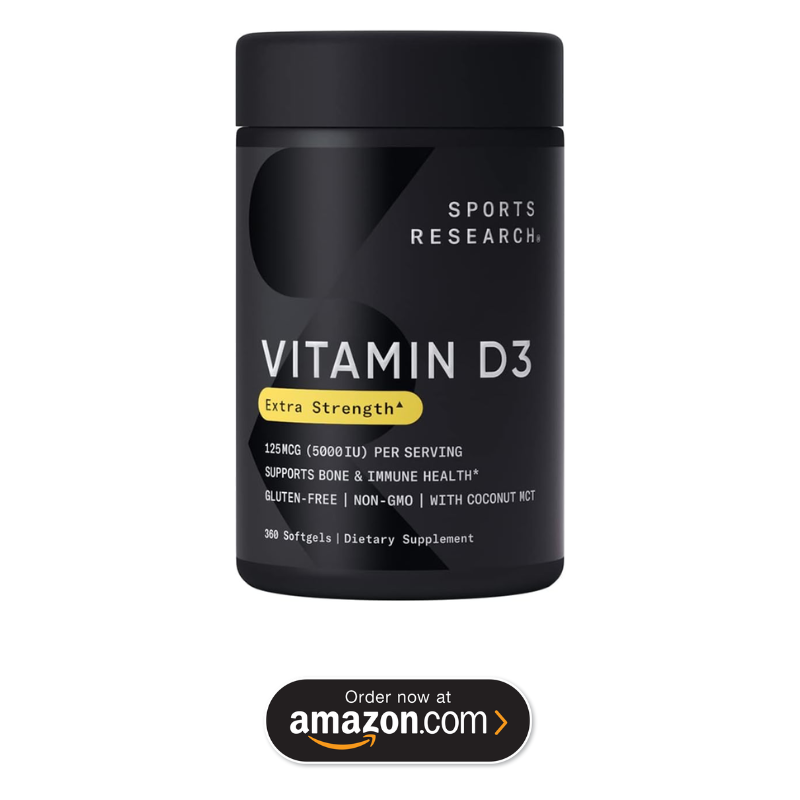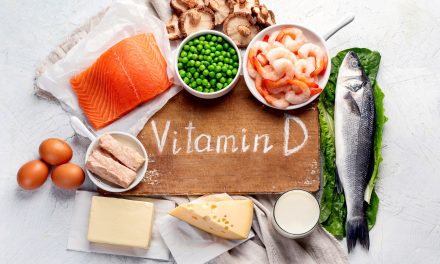Start Taking Vitamin D Now to Restore Your Hair and Health
In this enlightening article, you will discover the significant implications of low Vitamin D levels on our overall health and well-being, most notably the correlation between Vitamin D deficiency and hair loss.
A considerable body of research has established the importance of Vitamin D in our diet; it aids calcium absorption for stronger bones and promotes the growth and strength of hair follicles. It’s unsettling to know that missing this vital nutrient could lead to hair loss. While many may resort to medication, the solution might be as simple as replenishing your body’s Vitamin D levels.
Moreover, we will explore how you can ensure optimal absorption of this fat-soluble vitamin, as improper intake can render it a wasteful exercise. You’ll learn about lifestyle changes and dietary habits that might lead to a deficiency and the steps to avoid it.
In essence, your journey to restoring hair health and overall well-being begins with maintaining the recommended daily intake of Vitamin D. Your life could change significantly with the right awareness and necessary action.
The Impact of Low Vitamin D Levels on Hair Loss and Overall Health
Maintaining optimal health requires a balance of many different factors, one of them being adequate vitamin intake. Specifically, vitamin D plays an integral role in our well-being and impacts various health issues, from our immune systems to our hair health. Whether you are already facing hair loss or merely trying to keep your hair as lush and healthy as possible, learning about the role of vitamin D may provide some helpful insights.

Vitamin D’s Role in Hair Loss and Health
Vitamin D’s importance in overall health
Firstly, let’s address vitamin D’s role in your overall health. This vitamin is responsible for aiding calcium absorption, regulating cell growth, and modulating immune function. While these alone are essential functions, vitamin D’s role ranges far beyond these, making a subtle yet significant impact on your daily life.
The impact of Vitamin D deficiency on hair loss
One of vitamin D’s less obvious roles relates to hair growth. Hair follicles—the tiny pores from which new hairs grow—are sensitive to hormonal shifts in your body, including those brought on by vitamin D deficiency. This deficiency can lead to hair loss as vitamin D stimulates new and old hair follicles. When you don’t get enough vitamin D, it may lead to alopecia or female-pattern hair loss.

Causes of Vitamin D Deficiencies
Lack of sun exposure as a cause of Vitamin D deficiency
Despite the importance of vitamin D, a significant portion of the population suffers from vitamin D deficiency. The main reason is inadequate sunlight exposure. It’s well known that your body can naturally produce vitamin D when directly exposed to sunlight. However, due to increased time spent indoors and extensive sunscreen usage, many individuals aren’t getting the vitamin D synthesis they need from sun exposure alone.
Low consumption of Vitamin D-rich foods as a cause of deficiency
Secondary to the lack of sun exposure, vitamin D deficiencies can also be due to inadequate intake of vitamin D-rich foods. While only a few foods naturally contain significant amounts of vitamin D—they include fatty fish, cheese, and egg yolks—some other foods, such as milk and cereals, are supplemented with vitamin D.

Importance of Taking Vitamin D with Fat
Fat solubility of Vitamin D
Regarding supplementation, it’s critical to understand how the body absorbs vitamin D optimally. Vitamin D is fat-soluble in the small intestine, which implies it needs to be consumed along with fat to be absorbed appropriately.
The need to take Vitamin D with fat for better assimilation
Therefore, you should take vitamin D and a fat-rich meal to ensure better assimilation and maximize your supplement. It might be as simple as taking your supplement with a handful of nuts or incorporating it into a meal.
Hair Follicles and Vitamin D
The role of Vitamin D in maintaining hair follicles
As for hair health, the active form of vitamin D plays a major role in hair follicle health. Vitamin D and its receptors can regulate keratinocytes, the cells that produce keratin, a protein structural component of hair. When your body lacks vitamin D, it can disrupt the natural hair growth cycle and shedding.
Hair follicle death and regrowth without Vitamin D
Without enough vitamin D, hair follicles go dormant or die off, which can lead to hair loss. However, correcting a deficiency in this vitamin can help improve the health of your hair follicles and potentially stimulate hair regrowth.

Recommended Daily Intake of Vitamin D
Standard dietary recommendations for Vitamin D intake
The standard daily intake varies with age, general health, and lifestyle. For most adults, 600 to 800 International Units (IUs) of dietary vitamin D is recommended daily. However, individual needs can vary; you may need more if you’re older or have certain health conditions.
Individual needs and doctor-recommended dosage
Always consult with a healthcare professional before beginning supplementation. They can test your vitamin D levels to determine whether or not you have a deficiency, and they can recommend the correct dosage for you based on your dietary needs and lifestyle factors.
Other Health Problems Caused by Low Vitamin D Levels
The weakened immune system as a result of Vitamin D deficiency
Aside from promoting hair health, vitamin D also plays a substantial role in fortifying the immune system. A deficiency can make you more susceptible to infections and diseases.
Difficulty in healing
Furthermore, adequate vitamin D levels ensure that your body has the capability to heal and repair effectively. A deficiency might lead to delayed healing of wounds and injuries.
Sleep disorders
Vitamin D deficiency has also been linked to certain sleep disorders. Adequate vitamin D levels are crucial for maintaining good health and ensuring a restful night’s sleep.

The Timeframe for Seeing Changes in Hair Growth and Energy Levels
Expected time for hair growth and energy level changes after starting Vitamin D supplementation
Once you start supplementing vitamin D, you might wonder when you’ll start seeing changes. It’s important to remember that the speed at which you’ll begin to notice results can vary widely and is influenced by your overall health, the severity of your deficiency, and the consistency of your supplementation. Positive changes in energy levels typically appear after a few weeks, while improvements in hair health may take a few months to become apparent.
Encouragement to Check Vitamin D Levels and Supplement Correctly
Importance of checking Vitamin D levels
Given the significant array of benefits and the critical role vitamin D plays in overall health, specifically in maintaining healthy hair, it’s essential to check your vitamin D levels regularly. Remember, having enough vitamin D promotes healthier hair and maintains overall health.
Proper supplementation guidelines
If you discover you have a vitamin D deficiency, start supplementation under the guidance of a healthcare professional. Taking the correct dosage, maintaining a diet rich in vitamin D, and managing exposure to sunlight can help restore your levels, ultimately promoting better health and potentially encouraging healthier hair growth.
In conclusion, don’t undervalue the role of small factors like vitamins in your overall health and hair growth journey. The more aware you are of the impacts and causes of deficiencies, the easier it can become to maintain healthier, happier hair and overall well-being.





